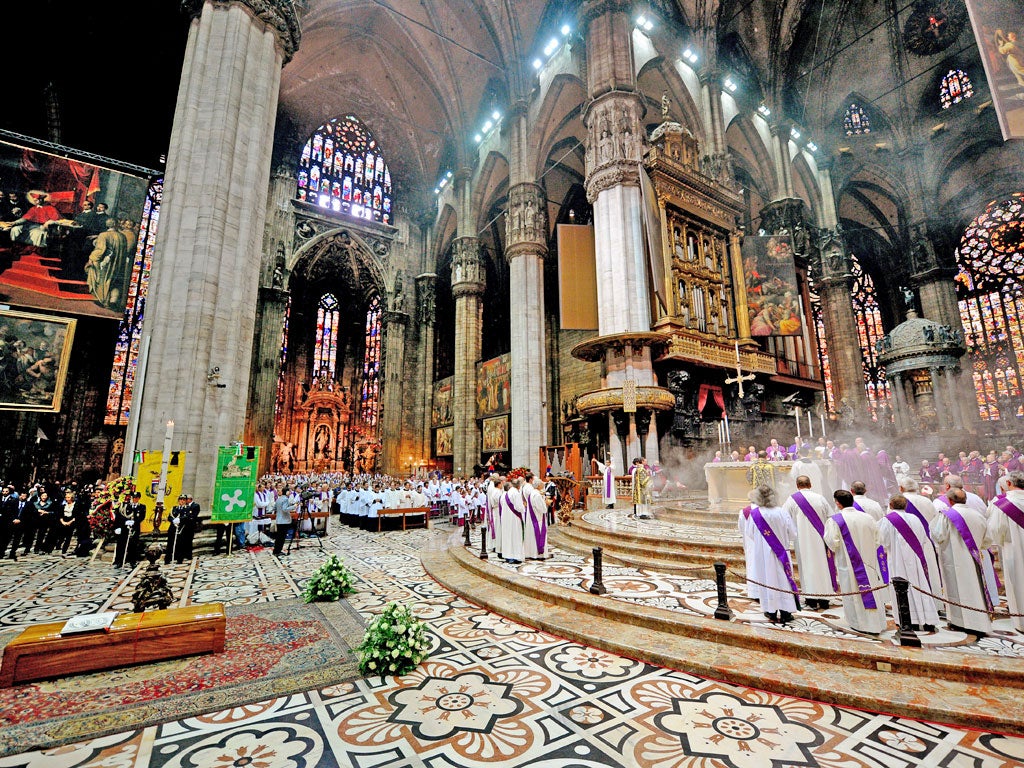Milan mourns cardinal who dared to challenge Rome

Your support helps us to tell the story
From reproductive rights to climate change to Big Tech, The Independent is on the ground when the story is developing. Whether it's investigating the financials of Elon Musk's pro-Trump PAC or producing our latest documentary, 'The A Word', which shines a light on the American women fighting for reproductive rights, we know how important it is to parse out the facts from the messaging.
At such a critical moment in US history, we need reporters on the ground. Your donation allows us to keep sending journalists to speak to both sides of the story.
The Independent is trusted by Americans across the entire political spectrum. And unlike many other quality news outlets, we choose not to lock Americans out of our reporting and analysis with paywalls. We believe quality journalism should be available to everyone, paid for by those who can afford it.
Your support makes all the difference.The great and the good filed into Milan's famous gothic cathedral yesterday afternoon for the funeral mass of Cardinal Carlo Maria Martini, one of the church's best-loved figures. Pope Benedict XVI wasn't one of them, however. Cardinal Angelo Comastri, the head priest of St Peter's Basilica, represented the pontiff.
The deeply conservative Benedict would have read, like everyone else, the liberal Cardinal Martini's scathing verdict on the church and its current leadership, which he described as "200 years out of date". In his message relayed by Cardinal Comastri, the Pope nonetheless expressed his "closeness in affection and prayer to the entire diocese of Milan, the Jesuits and the relatives and all those who had loved and admired Cardinal Carlo Maria Martini".
In terms of like-minded theologians, Cardinal Martini was thought to have had few friends inside the Vatican. But among ordinary people – thousands of whom stood outside under grey skies to watch the ceremony on two giant TV screens – his standing was enormous.
These people were quick to praise of the former Archbishop of Milan, who died on Friday, aged 85.
"He was always ahead of the rest of the church," said Michele Novaga, an aid worker.
"I think he probably understood that the people wanted another sort of church."
Elisabetta Grassi, a secretary, said: "I'm not really very religious, but I think he was a great man – and he commanded respect and admiration from people who were not church-goers. That's because he sought to include people and care about them, regardless of their background."
Join our commenting forum
Join thought-provoking conversations, follow other Independent readers and see their replies
Comments